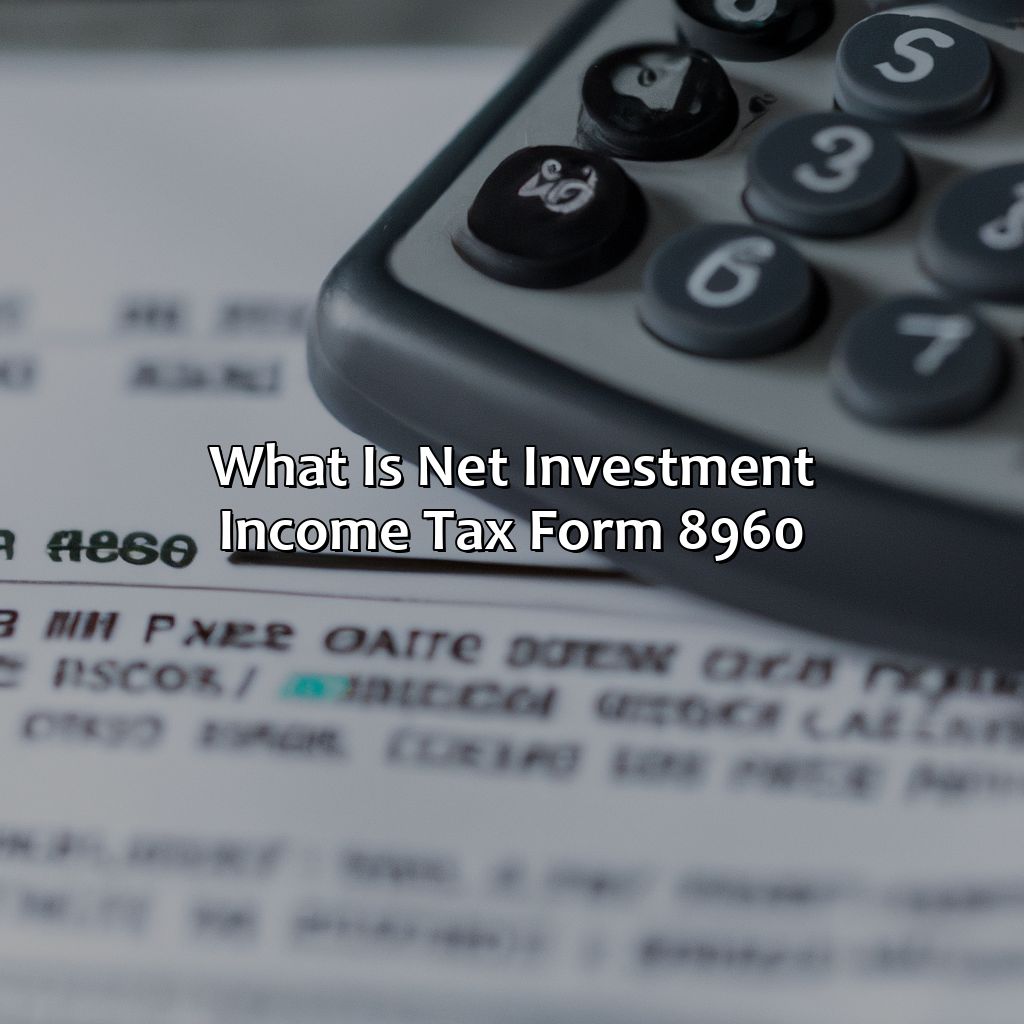What Is Net Investment Income Tax Form 8960?
Key Takeaway:
- Net Investment Income Tax Form 8960 is a tax form used to calculate and report the amount of net investment income subject to the tax, which is a 3.8% tax on certain types of investment income.
- Individuals, estates, and trusts with certain types of investment income and income above specific thresholds are required to file Form 8960.
- To calculate net investment income, taxpayers must add up all sources of investment income and subtract any allowable deductions and exemptions.
Do you struggle to understand taxes? Are you unsure of what Net Investment Income Tax Form 8960 is? With this blog, you can become more informed about taxes and learn more about form 8960.
What is Net Investment Income Tax?
Net Investment Income Tax – An Overview
Net Investment Income Tax refers to a tax on unearned income that is introduced under the provisions of the Affordable Care Act. The tax imposes an additional 3.8% levy on the net investment income of high-income individuals, trusts, and estates. The tax applies to the lesser of net investment income or Modified Adjusted Gross Income (MAGI) in excess of a specified threshold.
The levy applies to income generated from various sources, such as interests, dividends, capital gains, rental income, and few other passive income streams. It should be noted that this tax only applies to individuals, estates, and trusts with income over $200,000 or $250,000 for married people filing jointly.
The new tax came into effect from January 1, 2013, and was implemented to help finance the Affordable Care Act. According to the IRS, this tax generated approximately $18.3 billion in revenue for the government in 2020, which was an increase from $16.7 billion in 2019.
True Fact: The tax forms related to this tax (Form 8960) have been altered several times since their introduction in 2013 to enhance guidance and clarify reporting obligations. (Source: IRS)
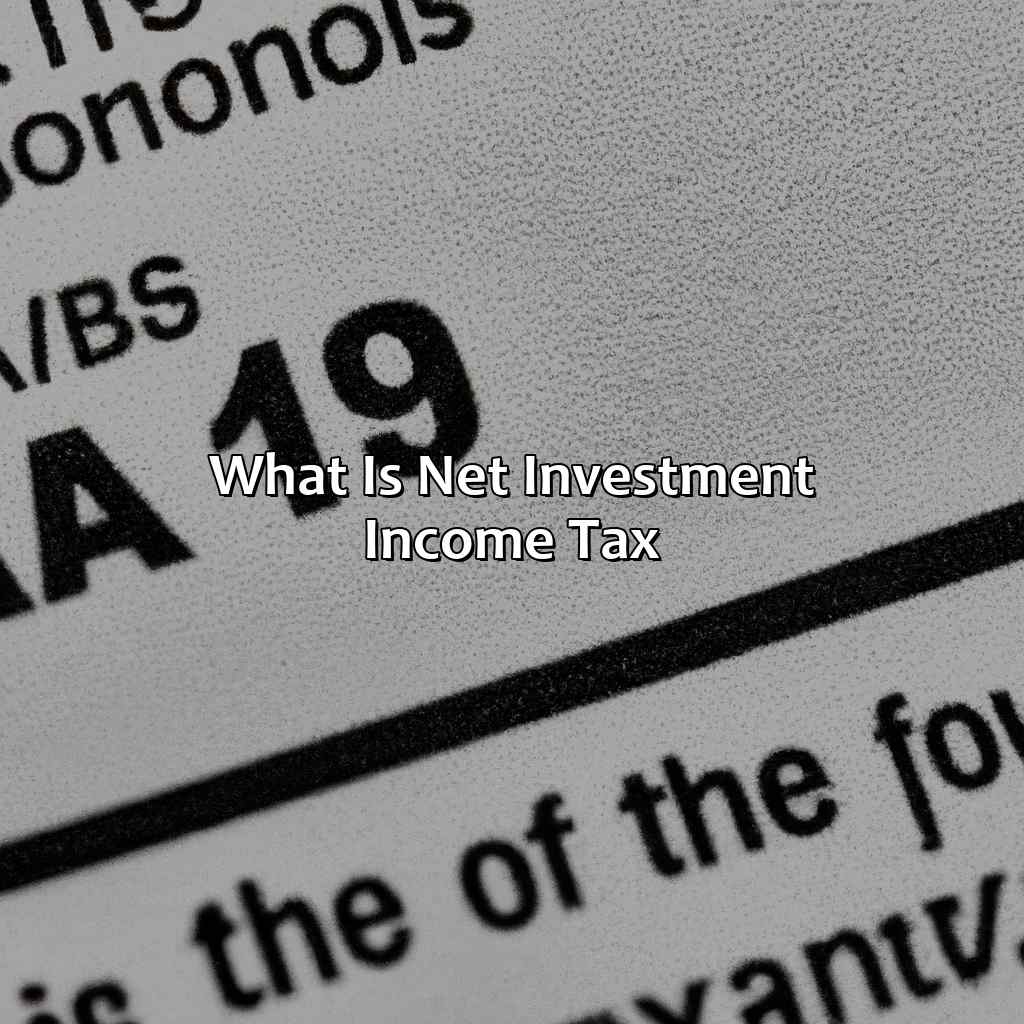
Image credits: retiregenz.com by James Washington
Who needs to file Form 8960?
Form 8960 is necessary for those individuals who have high Net Investment Income. People who have investment income such as interest, dividends, capital gains, rental income, etc., and their modified adjusted gross income exceeds a certain threshold need to file this form. Also, Trusts and estates need to file this form if they have undistributed net investment income.
The form 8960 is mandatory for those whose Modified Adjusted Gross Income (MAGI) is above the threshold. This threshold is set at $200,000 for single filers, $250,000 for joint filers, and $125,000 for married individuals filing separately. Net Investment Income includes all forms of investment income such as interest, dividends, capital gains, rental income, royalties, etc. If the individual’s total net investment income exceeds $1,000, then they need to file this form.
It’s important to note that some situations may require individuals to file this form even if their income is below the threshold. These situations include, but are not limited to: receiving large capital gains, dividend, or interest payments; having a significant passive activity loss; or selling a business or investment property for a large gain.
Failing to file Form 8960 can result in significant penalties, including interest charges, penalty fees, and even criminal charges. Therefore, it’s important to consult with a tax professional or utilize software that can determine whether or not you need to file the form and how to properly do so.
Don’t take the Net Investment Income Tax Form 8960 lightly. Filing this form is necessary to avoid penalties and interest charges. It’s essential to be knowledgeable about the criteria for needing to file this form, and to seek assistance to ensure accuracy and compliance with tax regulations.
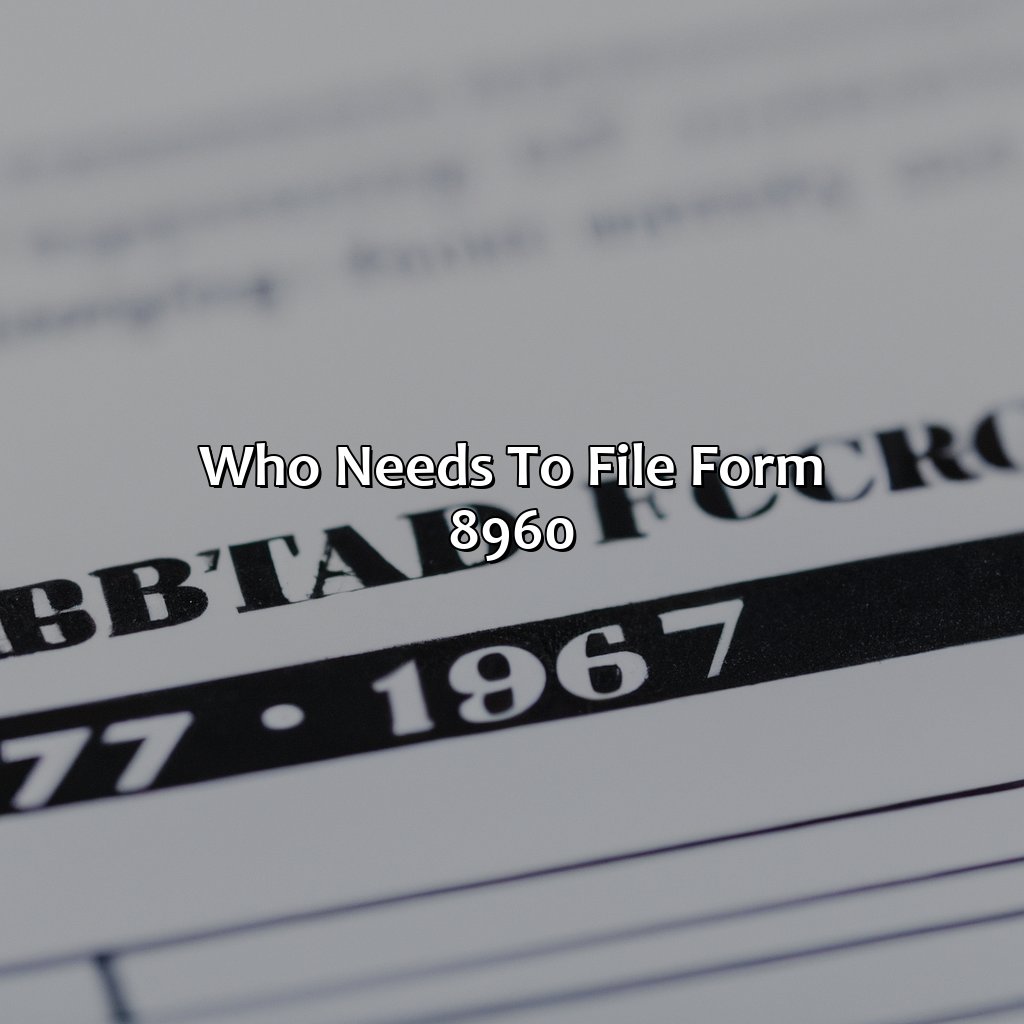
Image credits: retiregenz.com by Joel Jones
How to calculate Net Investment Income?
To determine the Net Investment Income, taxpayers must first add up their investment incomes, including rental income, capital gains, and dividends. Deduct any losses from investments, such as rental or capital losses. Additionally, taxpayers should subtract expenses that have ties to their investment ventures, such as investment interest expenses or brokerage fees. Finally, taxpayers must add up any excluded investment income, such as municipal bond income.
It is crucial to note that certain taxpayers, such as trusts and estate owners, have different calculations for Net Investment Income. They may need to consult a tax professional or the IRS guidelines for proper calculations.
A single taxpayer earning a minimum of $200,000 annually or a married couple with a combined income of at least $250,000 is subject to pay the Net Investment Income Tax. The tax rate is 3.8%. (Source: IRS)

Image credits: retiregenz.com by James Jones
What is included in Net Investment Income?
Net Investment Income is a term used to describe the income generated from investment assets such as stocks, bonds, mutual funds, rental properties, and other investments. This income includes interest, dividends, capital gains, passive rental income, and other investment-related income.
The Net Investment Income Tax Form 8960 is a form used to calculate and report the amount of Net Investment Income Tax a taxpayer owes. It takes into account the taxpayer’s net investment income and their modified adjusted gross income. If the taxpayer’s income exceeds certain thresholds, they may be subject to an additional 3.8% tax on their net investment income.
It’s important to note that not all types of investment income are subject to the net investment income tax. For example, income from tax-deferred retirement accounts such as 401(k)s and IRAs is not included. Additionally, certain types of income from active businesses are not subject to this tax.
According to IRS data from 2018, approximately 3.7 million taxpayers reported owing Net Investment Income Tax, with a total amount owed of over $21 billion.
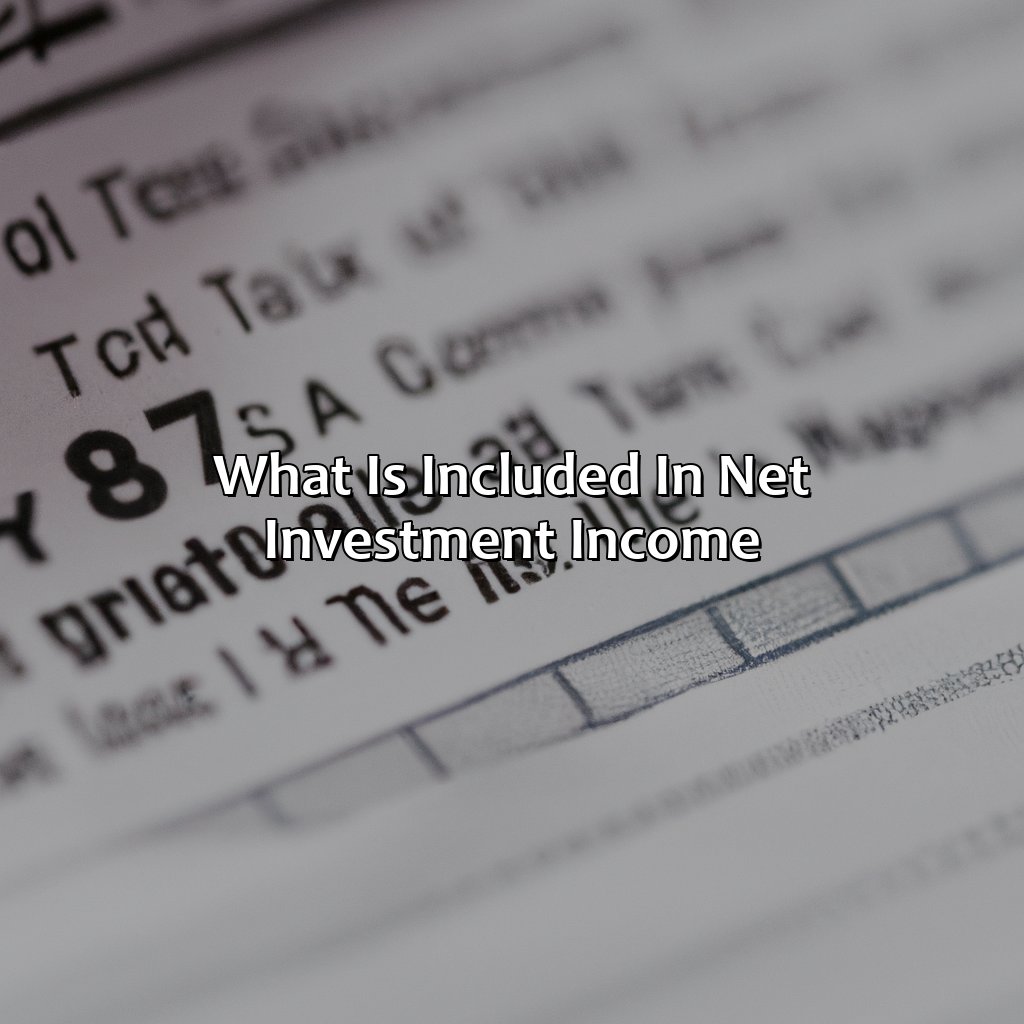
Image credits: retiregenz.com by James Washington
What are the exemptions and deductions available in Form 8960?
Form 8960 offers exemptions and deductions for net investment income tax. Here are some ways to reduce your tax liability according to Form 8960:
- Exemptions for taxpayers with modified adjusted gross income (MAGI) below a certain threshold.
- Deductions for investment expenses such as tax preparation fees, safe deposit box fees, and investment advisory fees.
- Exemptions for income excluded from gross income such as tax-exempt interest and qualified dividends.
- Deductions for investment interest expense such as margin interest and investment loan interest on net investment income.
- Exemptions for certain trusts such as charitable remainder trusts and qualified retirement plan trusts.
It’s important to note that some exemptions and deductions may have different rules and limitations, so consult with a tax professional or refer to the Form 8960 instructions for more details.
To avoid potential penalties and interest, it is crucial to take advantage of all available exemptions and deductions. Take the time to thoroughly review your investment income and expenses and consult with a tax professional to ensure you are maximizing your savings. Don’t miss out on potential tax savings and file your Form 8960 correctly.
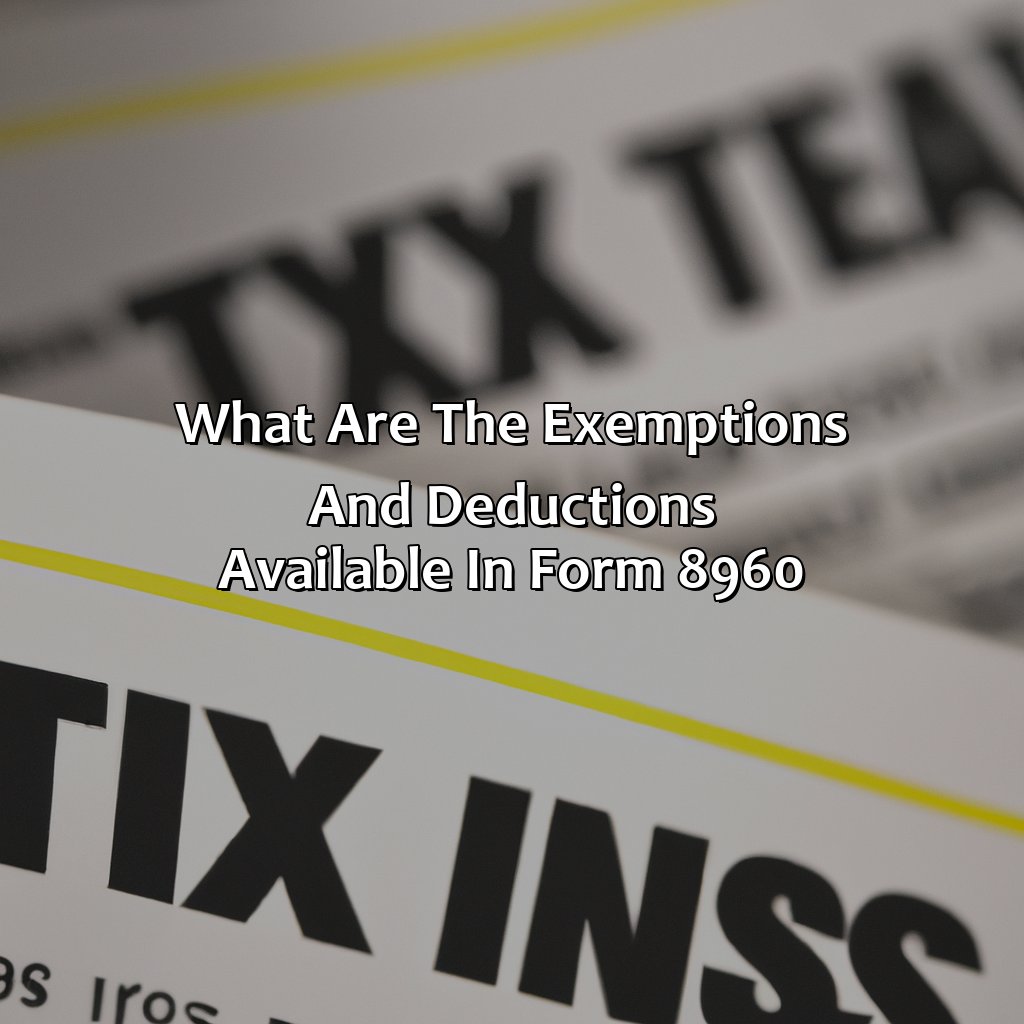
Image credits: retiregenz.com by Joel Duncun
How to file Form 8960?
In this article, we will discuss the process of filling out the Form 8960 for net investment income tax professionally. This form is designed specifically for individuals who have exceeded the threshold level of maximum investment income and are required to report their net investment income on their tax return. Here’s a step-by-step guide on how to file Form 8960.
- Step 1: Download IRS Form 8960 from the official IRS website.
- Step 2: Gather all relevant information on investment income and deductions.
- Step 3: Fill in Part I of the form, which includes personal information and details of the investment income.
- Step 4: Move on to Part II of the form, where the allowable deductions are listed. Apply the relevant deductions and calculate the net investment income tax.
- Step 5: Attach Form 8960 to your tax return and submit it to the IRS.
- Step 6: Retain a copy of Form 8960 and all supporting documents for future reference.
It’s important to note that filing Form 8960 is mandatory for those who meet the investment income thresholds, and failure to do so may result in penalties. Additionally, it’s essential to keep track of any changes in investment income or deductions throughout the year to ensure accurate reporting.
Did you know that the threshold amount for net investment income tax is $200,000 for single filers and $250,000 for joint filers? This fact was reported by the Internal Revenue Service (IRS) in their official publication titled “Instructions for Form 8960”.
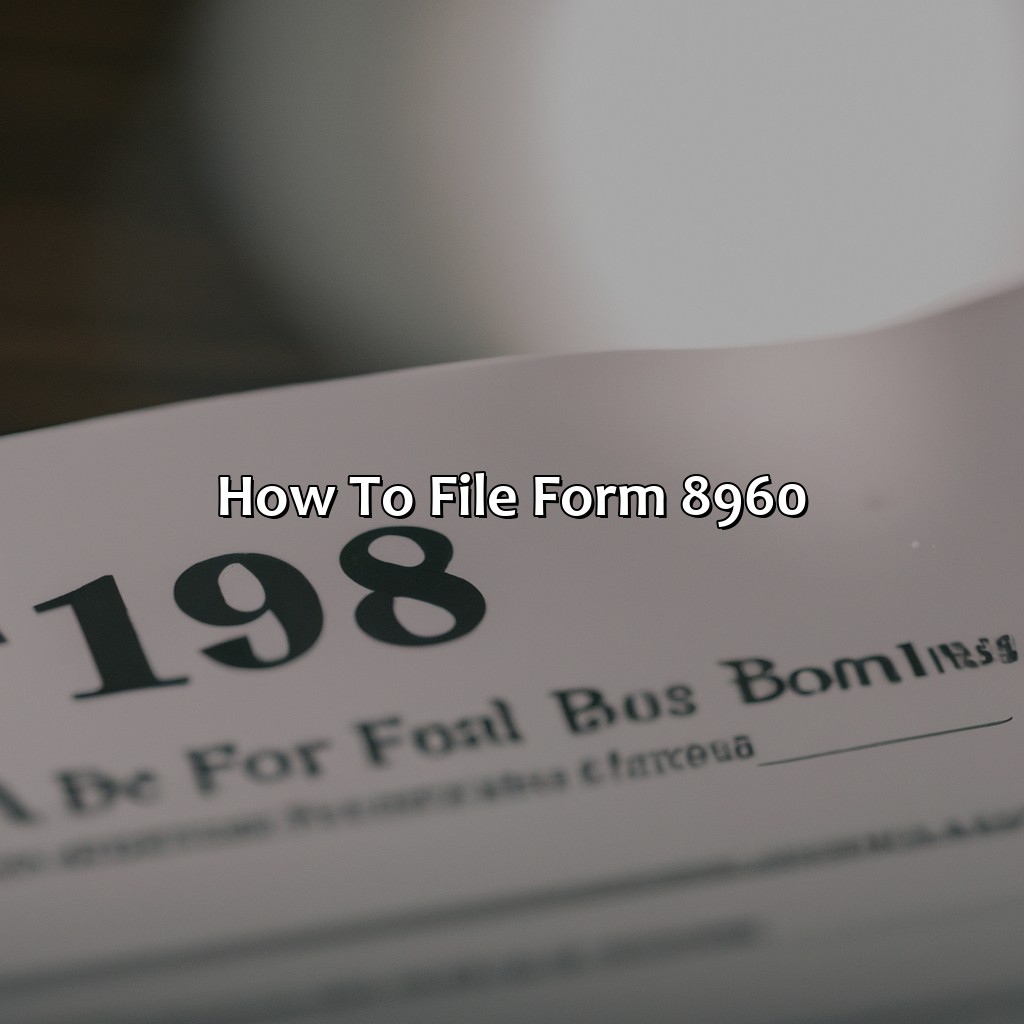
Image credits: retiregenz.com by Harry Washington
Penalties for not filing Form 8960
Neglecting to file Form 8960 may trigger monetary fines. Failure to file can lead to penalties, with the amount rising for each day the form remains unfiled. The charge for failing to file the form, even if you have zero tax liability, is Rs. 10,000, according to the Income Tax Act. This penalty can be devastating for small companies or people with limited financial resources. Moreover, if there is an error in your income tax return and the form is missing, the authorities may assess a further penalty of 200% of the sum of tax payable.
It is critical to remember that the penalty for failing to file the Form 8960 is separate from the penalty for failing to pay your tax liabilities on time. Overdue taxes will be subject to a separate late payment penalty. Therefore, timely submission of the Form 8960 is critical to avoiding additional fees and charges.
Importantly, if your net investment income is not subject to tax or you do not fulfill certain requirements, you may not be required to submit Form 8960. You are advised to consult a tax expert who can help determine if this form is mandatory for you.
According to Economic Times, the Indian government revised the penalty fee for failing to file Income Tax Return. For 2018, the penalty fee for filing an ITR after July 31, 2018, is Rs 5,000 for an income below Rs 5 lakhs and Rs 10,000 for an income above Rs 5 lakhs.
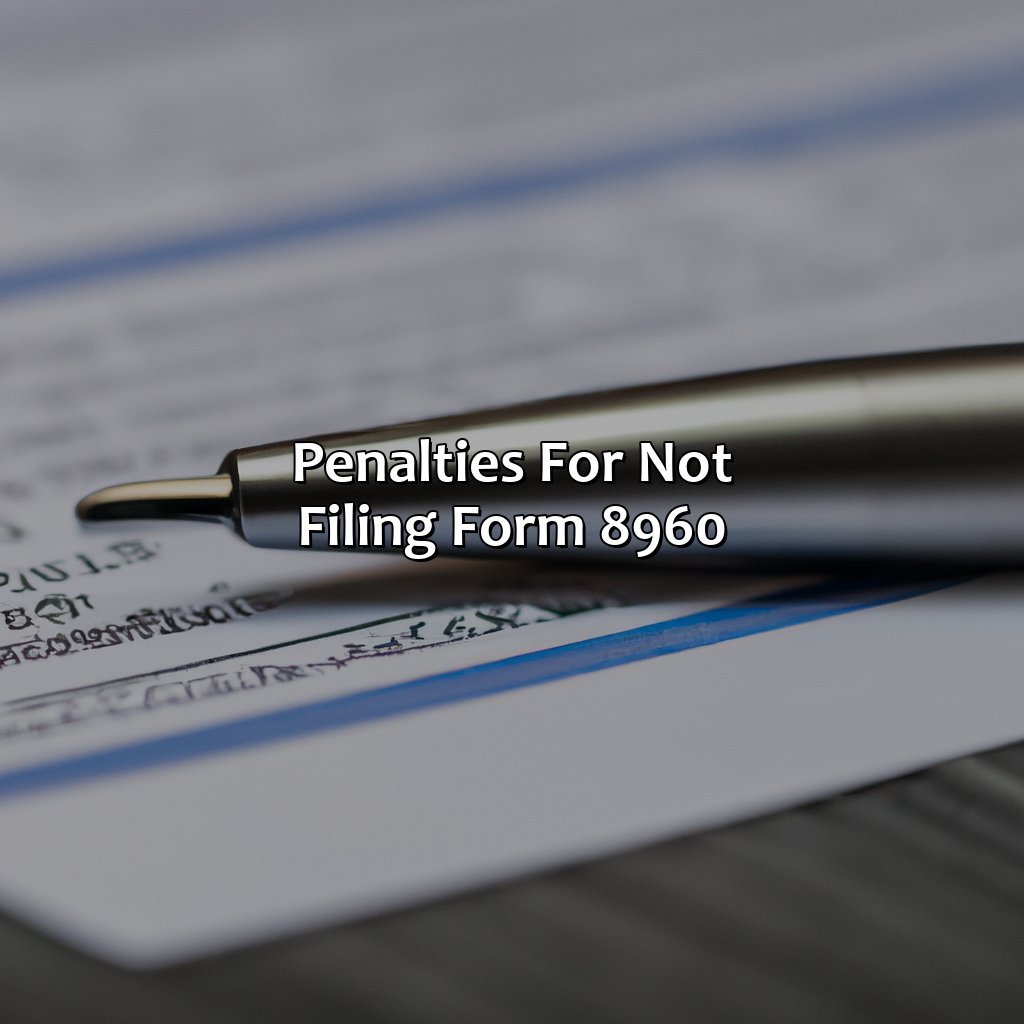
Image credits: retiregenz.com by Yuval Arnold
Five Facts About Net Investment Income Tax Form 8960:
- ✅ Net Investment Income Tax Form 8960 is a tax form used to calculate and report the amount of net investment income tax owed by an individual, estate, or trust. (Source: IRS)
- ✅ The tax is assessed on the lesser of an individual’s net investment income or the excess of the individual’s modified adjusted gross income over a certain threshold. (Source: TurboTax)
- ✅ The threshold for net investment income tax is $200,000 for individuals and $250,000 for married couples filing jointly. (Source: Forbes)
- ✅ Net investment income includes investment income such as dividends, interest, and capital gains, minus any allowable deductions. (Source: H&R Block)
- ✅ The net investment income tax rate is 3.8%. (Source: IRS)
FAQs about What Is Net Investment Income Tax Form 8960?
What is Net Investment Income Tax Form 8960?
Net Investment Income Tax Form 8960 is a tax form used to calculate the amount of net investment income tax a taxpayer owes. This tax is a 3.8% tax levied on investment income such as interest, dividends, capital gains, rental and royalty income, and passive activity income.
Who is required to file Form 8960?
Individuals, estates, and trusts who have net investment income and modified adjusted gross income over certain thresholds are required to file Form 8960. For individuals, the threshold is $200,000 for single filers and $250,000 for married filing jointly. For estates and trusts, the threshold is $12,750 for 2021.
How do I calculate my net investment income?
Net investment income is calculated by subtracting investment expenses from investment income. Investment income includes interest, dividends, capital gains, rental and royalty income, and passive activity income. Investment expenses include items such as investment advisory fees, custodial fees, and safe deposit box rental fees.
What is the rate for net investment income tax?
The rate for net investment income tax is 3.8% of the lesser of either your net investment income or your modified adjusted gross income over certain thresholds. The thresholds are $200,000 for single filers and $250,000 for married filing jointly. For estates and trusts, the tax rate is 3.8% of the amount of net investment income over the threshold.
When is the deadline to file Form 8960?
The deadline to file Form 8960 is the same as your income tax return deadline, which is usually April 15th. However, if April 15th falls on a weekend or holiday, the deadline may be extended.
What happens if I don’t file Form 8960?
If you are required to file Form 8960 and fail to do so, you may be subject to penalties and interest on the tax owed. Additionally, the IRS may initiate an audit or examination of your tax return.
